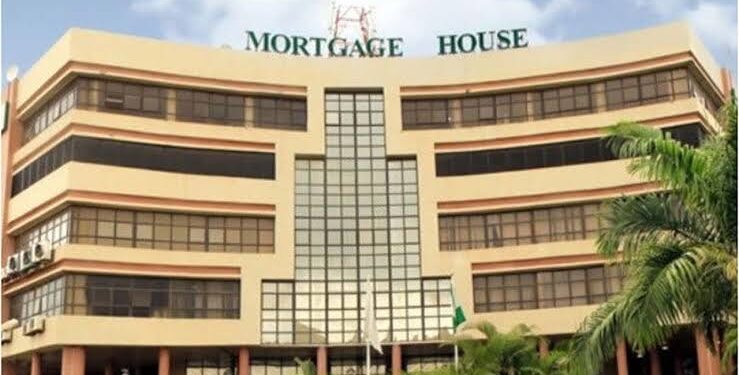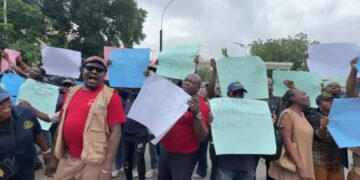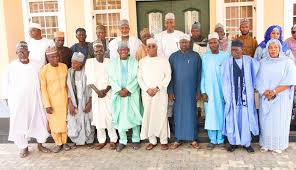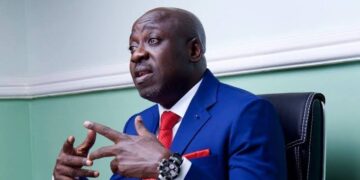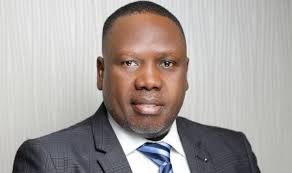The United States Chamber of Commerce has expressed a strong interest in making a substantial investment in Nigeria, to the tune of approximately $320 million, with a particular focus on mortgage refinancing and the development of small and medium enterprises (SMEs).
This significant move was announced through the office of Nigeria’s vice president, in a statement that underscores the deepening economic relationship between Nigeria and the U.S.
Nisha Biswal, the deputy CEO of the U.S. International Development Finance Corporation (DFC), made this announcement on Monday. Biswal’s remarks came during the U.S.-Nigeria Executive Business Roundtable, an event hosted by the U.S. Chamber of Commerce.
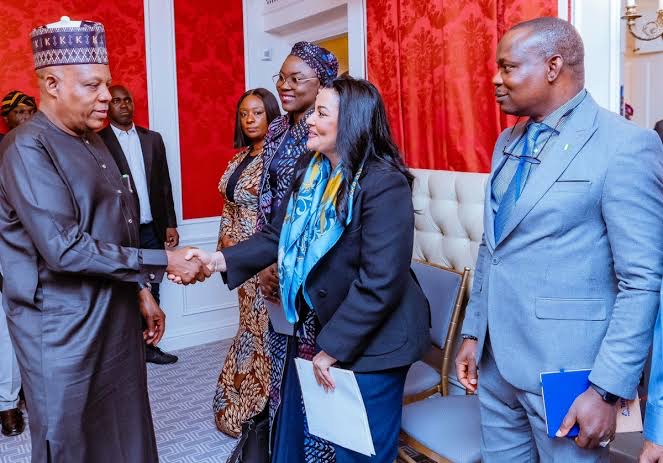
The roundtable was one of the key activities tied to the ongoing 79th Session of the United Nations General Assembly (UNGA) in New York, bringing together business leaders, investors, and policymakers from both nations to explore collaborative economic opportunities.
During her address, Biswal explained that the U.S. Chamber of Commerce holds a portfolio of $1 billion for international investments and plans to allocate $200 million from this fund towards mortgage refinancing in Nigeria. This is aimed at addressing Nigeria’s housing finance challenges and facilitating affordable homeownership for its citizens.
She further elaborated on the chamber’s intention to invest another $100 million to support small and medium enterprises in Nigeria, with particular attention on advancing women’s economic empowerment.
“Also, the sum of $100 million has been earmarked for FCMB to finance SMEs in Nigeria, with particular interest in women empowerment,” Biswal announced. This initiative aligns with global efforts to close the gender gap in economic participation and highlights the U.S. Chamber’s commitment to inclusive development.
Additionally, she revealed that $20 million has already been approved for a firm named Robust International, which is focused on the processing of cashew nuts in Nigeria. Cashew processing is a vital part of Nigeria’s agricultural sector, and this investment is expected to bolster local processing capacity, enhance value addition, and provide employment opportunities. “The U.S. Chamber of Commerce also announced that $20 million has been approved for a firm, Robust International, for processing of cashew nuts in Nigeria,” Biswal stated.
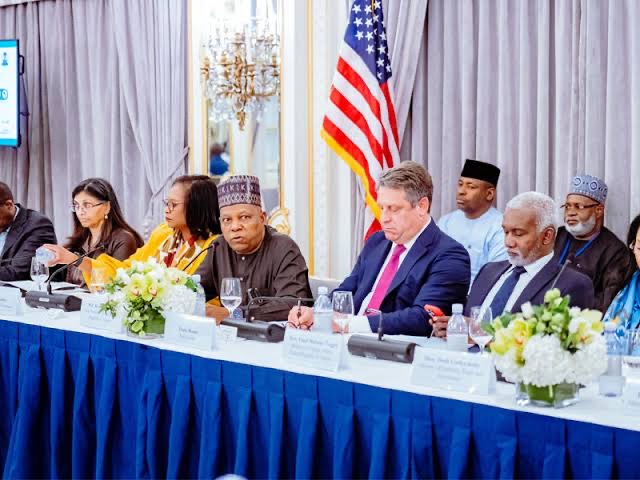
Throughout her speech, Biswal emphasized that the American Chamber of Commerce remains fully committed to collaborating with Nigeria to foster sustainable economic growth. She highlighted that the Chamber is not only interested in financial returns but also in supporting policies and investments that have long-term benefits for both nations.
In response to these announcements, Vice-President Kashim Shettima, who is heading Nigeria’s delegation to the UNGA, expressed his gratitude and reiterated the Nigerian government’s dedication to implementing policies that attract and retain foreign investments. He seized the opportunity to encourage the U.S. Chamber of Commerce to place its trust in Nigeria, emphasizing the proactive steps the current administration has already taken to create a more favorable business environment.
“I urge you to give Nigeria the benefit of the doubt. The current administration led by President Bola Tinubu is the most investor-friendly administration in the history of Nigeria,” Shettima stated confidently.
He highlighted that one of the key achievements of President Tinubu’s administration was the swift removal of the fuel subsidy, a long-standing economic burden on Nigeria. Shettima noted that this decisive action, taken right at the beginning of Tinubu’s tenure, was crucial to unshackling the country’s economy.
He further mentioned the government’s efforts to unify Nigeria’s multiple and often opaque foreign exchange markets, ensuring greater transparency and stability in currency exchanges.
“When fuel subsidy was an albatross around Nigeria’s neck, President Tinubu, from day one, hit the ground running by withdrawing the fuel subsidy and unifying the multiple opaque foreign exchange markets,” Shettima added, stressing that these reforms were evidence of the administration’s commitment to creating a more attractive climate for investors.
In addition to his participation at the U.S.-Nigeria Executive Business Roundtable, Shettima’s visit to New York involves several other high-level engagements as part of the broader Nigerian delegation’s participation at the UNGA. The Nigerian delegation includes prominent government officials such as Foreign Affairs Minister Yusuf Tuggar, who has been coordinating key aspects of the vice-president’s itinerary.
Tuggar provided a briefing on the planned activities for Shettima during his stay in New York, explaining that the vice president is expected to deliver Nigeria’s national statement during the general debate at the United Nations. This statement, prepared on behalf of President Bola Tinubu, will address a range of global and regional issues, including economic development, security, and Nigeria’s role on the international stage.
Tuggar added that beyond delivering the national statement, Vice-President Shettima is also scheduled to hold important discussions with United Nations Secretary-General António Guterres.


